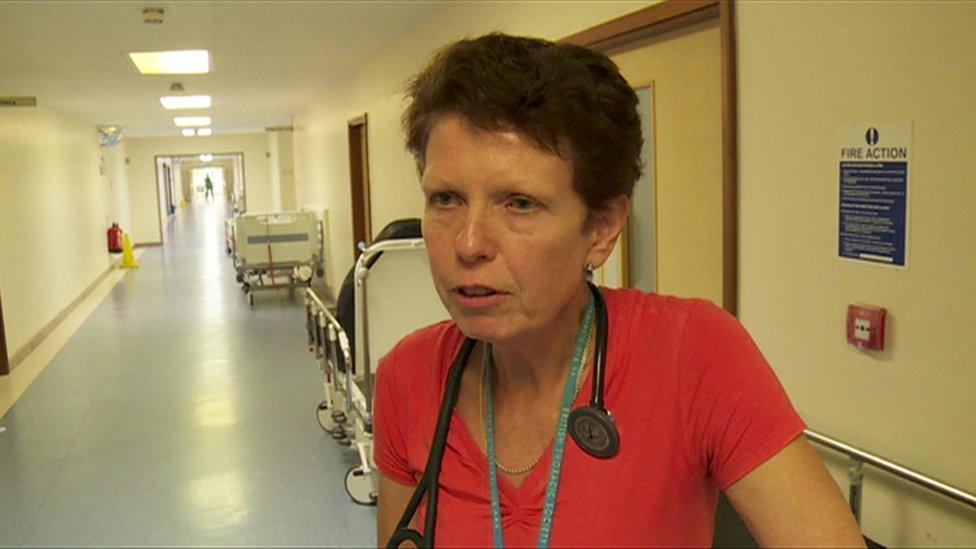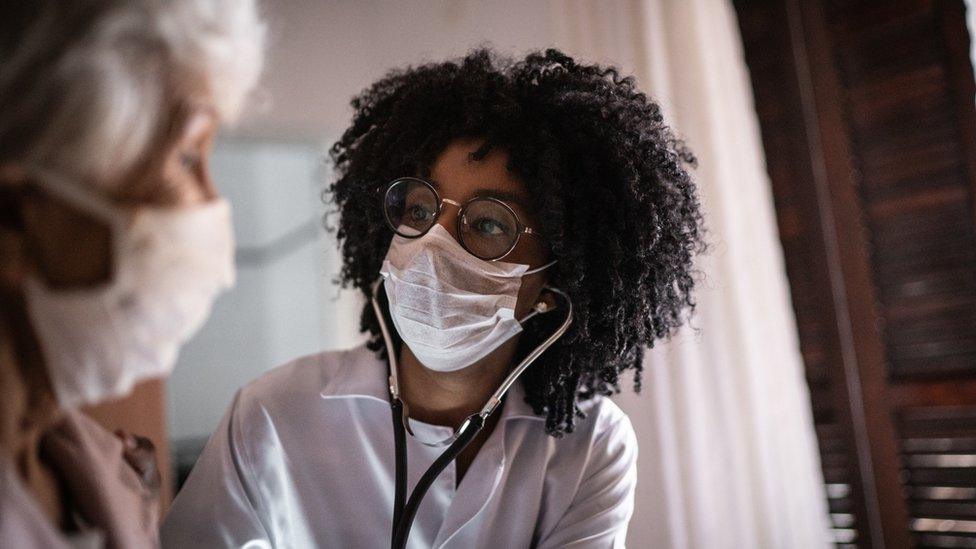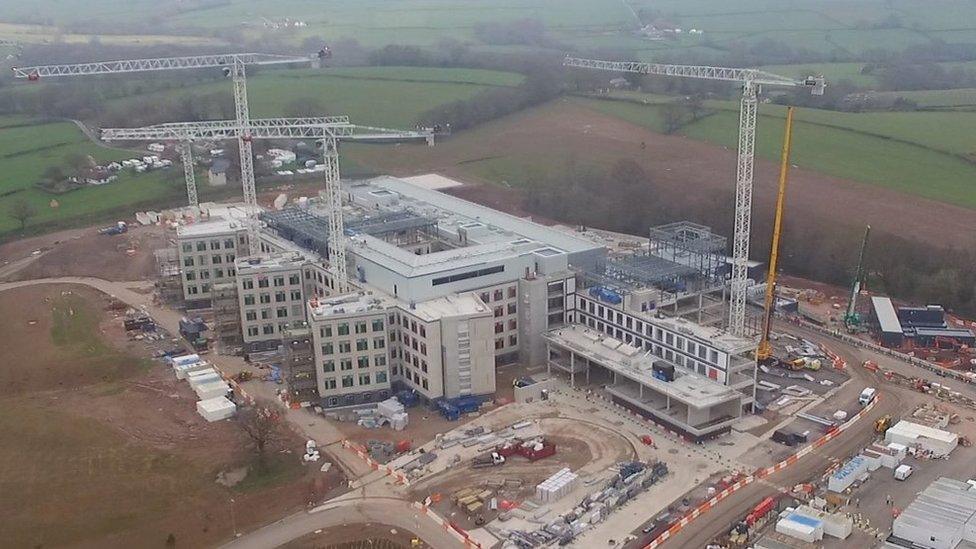Grange University Hospital: Concerns over patient safety
- Published
This 2019 film shows the hospital when the plan was to open in 2021
A senior doctor has said she has "huge concerns" about patient safety if a new hospital opens next week, four months ahead of schedule.
Deborah Wales said there were not enough doctors and nurses to staff the new Grange University Hospital in Cwmbran and existing hospitals.
In an email seen by BBC Wales, she told colleagues it "cannot function as intended" amid a second Covid surge.
Sarah Aitkin from the health board said a "minority of doctors" were worried.
Dr Aitkin, medical director at Aneurin Bevan health board, said detailed work was under way to ensure patients' safety across all sites.
"We are very confident about opening this hospital safely, there is an enormous amount of planning that has gone into that.
"It is making Nevill Hall hospital and the Royal Gwent safe that is now in detailed planning, and that is what Dr Wales is concerned about. We are working through that patient-by-patient.
The £350m new hospital in Llanfrechfa is a 471-bed facility which has taken three years to build, and will provide a range of services including accident and emergency for the most seriously ill or injured, and obstetrics.

Deborah Wales is concerned the hospital "cannot function as intended" amid a second Covid surge
The opening on 17 November is happening during the second wave of coronavirus cases.
Dr Wales is a divisional director of unscheduled care at the health board, and in an email marked "official - sensitive" she outlined concerns about the opening of the new hospital.
She wrote: "I thought it important to write to everyone regarding the huge concerns that I have about patient safety if the GUH [Grange University Hospital] opens as planned in a week's time.
"I have been communicating these concerns via email and directly to executive colleagues however the plan remains to go ahead.
"We are in the midst of the Covid second surge; as such we will be going into the GUH in surge and it cannot function as intended."
Dr Wales detailed how the new hospital will open with considerable changes to its planned services due to the pandemic, and set out her concerns that staffing levels would not match the demands faced at the new hospital and the area's existing hospitals.
The workforce was "depleted, stretched, tired" and unprepared for the opening of the new hospital, she said, and highlighted a staff sickness rate "in excess of 15%".
There was a shortage of doctors, she said, but that was "dwarfed by the nursing deficit".
Efforts had been made to block-book temporary nursing staff, she added, but that there "remain many wards with inadequate/no staffing" at all at the health board's major hospitals including the new hospital.
"Trying to cope with the inpatients across four sites will inevitably reduce the ability to continue with elective work such as endoscopy. This presents further risk to our patients particularly in cancer work, where delays in diagnosis and treatment will cause increased mortality," she said.

The workforce is "depleted, stretched, tired", and there is a shortage of doctors and nurses, the email said
From 17 November the new hospital will become the accident and emergency department for everyone in the health board area, treating the most seriously ill patients, those with significant injuries, and babies under 12 months even if they have a minor injury or illness.
There will be 24-hour minor injury units at the Royal Gwent Hospital in Newport, Nevill Hall Hospital in Abergavenny and Ysbyty Ystrad Fawr in Ystrad Mynach.
Ysbyty Aneurin Bevan in Ebbw Vale will continue to have a minor injury unit open from 09:00 to 19:00, Monday to Friday.
Services at the Grange University Hospital will also include obstetric inpatients and high-risk births, a neonatal intensive care and special care baby unit, paediatrics, and cardiology among others.
'Carrying the burden' of Covid
Tim Rogerson, clinical director for emergency medicine for the health board, said: "We're going to be able to deliver the standard of care in an environment that we've always wanted to.
"The hospitals we've had have been great for their time but it has been time for quite a while for us to move onto a modern facility and this delivers that."
He added opening during a pandemic had not been ideal but "everyone's really stepped up and delivered early".
"The first wave was really hard and we saw things and did things that we never wanted to do in our career and I think all NHS staff are carrying a burden of that.
"How it feels in the department now is very similar to April and May with a steady and increasing flow of really sick people and not just the elderly - you know, young people, people at the same age as me have come in with numbers that are really worrying, so it's starting to feel like it did.
"Hopefully we'll see something from the firebreak that it will start to plateau the numbers but it's a stage that we didn't want to be at."
- Published29 October 2019

- Published30 October 2020
